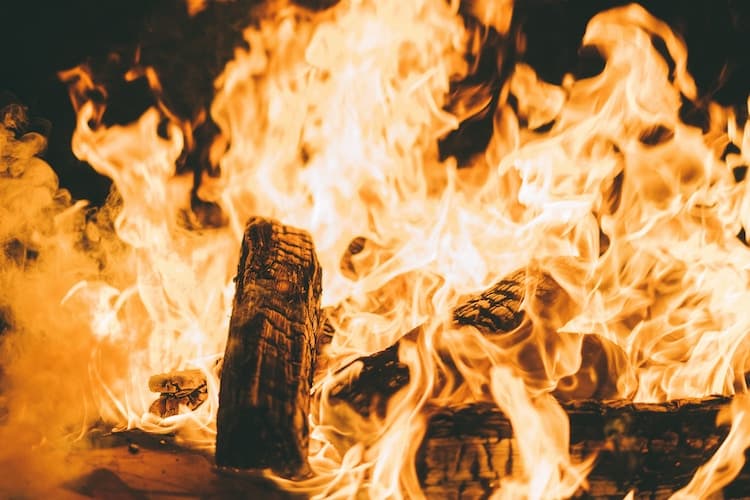
Laptops and computers heat up generally heat up during normal use. Getting an understanding of why they do so can help control their temperature and prevent it from getting too hot. I decided to look into why laptops and computers heat up.
Here are a list of reasons computers heat up:
- poor ventilation through the vents
- poor interior cooling system such as a broken internal fan
- poor CPU cooling system
- poor heat sink
- heavy amount of work on the CPU or GPU
- general hard disk drive task
- heat generation from the power supply
- leaving your machine in warm environments
Healthy laptops and computers are important for everyday use. There are preventative measures that can be taken to lessen the chance of your laptop or computer being damaged from heat related issues. If your machine is currently having overheating issues, then there are still steps that can be taken to rectify the issue.
A Deeper Look Into Why Laptops / Computers Heat Up
Computers are made up of components that generate heat. The Central Processing Unit (CPU) can generally run at up to 60 degrees Celsius / 140 degrees Fahrenheit. It is advised to refer to the manual of your specific CPU though to get a more accurate number.
The CPU handles number intensive task such as creating financial models in a spreadsheet, word processing or other computationally intensive task. Proper cooling systems should keep the CPU at an appropriate temperature and prevent overheating but if your day to day involves these intense task then you will notice higher temperatures from your machine. you will It does not handle task that are graphics intensive.
The Graphic Processing Unit (GPU) handles graphic intensive task. The GPU can handle billions of calculations and instructions per second. Graphics such as 3D renderings can put computational strain on the GPU especially if it is being used for long periods of time.
Not taking proper care of your machine will cause it to heat up because dust can build up internally. Dust will block the vents and build up on the fans. This will hinder the airflow and in the long term damage components due to overheating.
It is a good idea to keep your laptop or computer in a location where it has room for air to flow. Obstructing the vents in any way will lead to increased temperatures internally and can damage your machine from overheating.
The heat sink is a thermally conductive component that is placed on top of the CPU or GPU to absorb a portion of the heat being generated. This piece takes the absorbed heat and passes it to the cooling system such as a fan or uses another way to disperse the heat out of the computer. This component is sometimes integrated with a fan cooling system.
The hard disk drive (HDD) is a component that contains small discs that rotate rapidly as data is being read and written from them. This component is what stores majority of your computers data for long term storage. I learned this process can be slow compared to other forms of reading and writing data from a computer.
If you copy large files from and to the HDD or perform any other intense operations on your HDD then this will produce heat since there is a decent amount of energy consumption.
The ODD is available on older laptop models and for certain computer builds. This component allows disc to be read and written from like DVDs. Electricity is used to spin the disc and this produces a fair amount of heat over time.
Other ways heat can be produced in a laptop or computer is from leaving it in a hot environment such as near a window on a sunny day or from the power supply producing heat.
How To Prevent Laptops / Computers From Heating Up
There are preventative measures that can be taken to keep your machine from heating up too much.
Always make sure that the vents are not obstructed. This is to allow maximal airflow and is necessary for your computer to disperse heat. There are typically noticeable vents on computers and these are important for keeping internal temperatures at an optimal level.
Clean your laptop or computer regularly. There are guides for doing this, and I suggest you use the instructions provided by whoever created your machine. Another suggestion is to contact the company directly and ask them for instructions on how to properly clean your machine or ask if they have a service to do so. The fans can collect dust, hair and other debris that will slow it down and prevent it from operating optimally.
There are times where the surface your machine is laying on gets noticeably warm. Moving your machine to a cooler environment can help with more efficient internal cooling. This is because heat travels from higher temperatures to lower temperatures.
Overclocking CPUs or GPUs may give better performance but the downside is that they may raise cause your machine to heat up. This can also cause damage in the long run to these parts or the parts that around it and void the warranty because some companies do not cover overclocking related issues.
I would suggest to just not overclock to keep your machine from producing too much heat. If you really must, then make sure to consult a professional and research on getting the appropriate cooling system.
Make sure the cooling systems in your computer are working appropriately such as the fan on your power supply or the cooling system for your CPU and GPU. These should always be operating appropriately or your machine could suffer permanent damage from overheating.
What To Do If Your Machine is Already Overheating
If your machine is already at the point where parts are overheating, then it needs to be addressed immediately because that is a sign that something is wrong.
For laptops, there are cooling pads that are an external accessory. They can help in keeping internal temperatures lower. This can be helpful because laptops are limited by their size, therefore the internal cooling is generally not that great. An external system can help aid the cooling.
Make sure to contact the company who made your computer and find out steps to take in alleviating your overheating issue.
This can include sending your machine to them, to take it apart and figure out if there is something wrong with the software or hardware. This can be a broken fan or liquid cooling system. It can sometimes be hard to tell what is wrong, which is why I suggest always consulting a professional for help.
Related Questions
What happens when a CPU is overheated for a long period of time? If the CPU is heated for a long period of time, then there could be damage to the motherboard and components that are near.
Why do laptops heat up on beds? When your laptop lies on a softer surface, the laptop can sink into the surface and have its vents blocked,
Why does my computer turn off on its own? Computers can automatically turn off on their own due to overheating. They are designed this way to help prevent damage from occurring.
